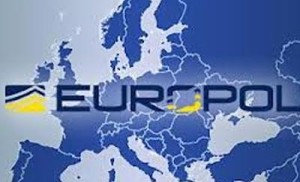
 The crime group owned two Internet Service Providers (ISPs) in Spain and Bulgaria, that illicitly offered more than 1000 TV channels to clients across Europe using Internet Protocol television (IPTV) technology. Eight suspects were arrested and the servers used to provide illegal access to the channels shut down. A joint investigation led by the Spanish National Police, with the support of the Bulgarian authorities, Europol and Eurojust, has resulted in the dismantling of a criminal network specialised in the illegal distribution of pay-TV channels on a European scale. The network is accused of illicitly distributing pay-TV channels in various European countries through two legally established Internet Service Provider (ISP) companies, located in Spain and Bulgaria, by using Internet Protocol television (IPTV) technology. In a coordinated action, eight suspects were arrested and 12 searches carried out simultaneously in Spain and Bulgaria. Investigators seized the servers used to provide illegal access to the channels, alongside numerous documents. Europol supported the investigations by providing information exchange, operational coordination and support, and forensic expertise. During the investigations, Europol organised an operational meeting at its headquarters in The Hague, and facilitated information exchange between law enforcement agencies and private-sector partners. On the action day, two experts from Europol’s Intellectual Property Crime Coordinated Coalition (IPC3) and two from Europol’s European Cybercrime Centre (EC3) were deployed to Spain and Bulgaria, equipped with mobile offices to support the actions on the spot. This allowed for real-time intelligence analysis and cross-checks against Europol’s databases, as well as forensic support. Operation Casper began when a representative from a broadcast rights holder filed a complaint against the owner of an Internet Service Provider (ISP) located in Málaga (Spain), for illicitly distributing pay-TV channels to thousands of clients in different EU countries. Investigations revealed that the ISP owner, a Danish citizen, was the leader of a criminal network who operated on a European scale. Investigators also unveiled the existence of a second ISP in Silistra (Bulgaria) owned by the network, which was permanently connected to the ISP in Spain and provided coverage to other European countries. Both ISPs were legally established in both countries and performed legal activities while, in parallel, exploiting their capacities to carry out illegal activities. The crime group also used a network of shell companies, which relied technically on the ISPs, and were in charge of distributing the illicit TV signals to the end clients. Operation Casper represents a great example of cross-border cooperation against intellectual property rights infringements.
The crime group owned two Internet Service Providers (ISPs) in Spain and Bulgaria, that illicitly offered more than 1000 TV channels to clients across Europe using Internet Protocol television (IPTV) technology. Eight suspects were arrested and the servers used to provide illegal access to the channels shut down. A joint investigation led by the Spanish National Police, with the support of the Bulgarian authorities, Europol and Eurojust, has resulted in the dismantling of a criminal network specialised in the illegal distribution of pay-TV channels on a European scale. The network is accused of illicitly distributing pay-TV channels in various European countries through two legally established Internet Service Provider (ISP) companies, located in Spain and Bulgaria, by using Internet Protocol television (IPTV) technology. In a coordinated action, eight suspects were arrested and 12 searches carried out simultaneously in Spain and Bulgaria. Investigators seized the servers used to provide illegal access to the channels, alongside numerous documents. Europol supported the investigations by providing information exchange, operational coordination and support, and forensic expertise. During the investigations, Europol organised an operational meeting at its headquarters in The Hague, and facilitated information exchange between law enforcement agencies and private-sector partners. On the action day, two experts from Europol’s Intellectual Property Crime Coordinated Coalition (IPC3) and two from Europol’s European Cybercrime Centre (EC3) were deployed to Spain and Bulgaria, equipped with mobile offices to support the actions on the spot. This allowed for real-time intelligence analysis and cross-checks against Europol’s databases, as well as forensic support. Operation Casper began when a representative from a broadcast rights holder filed a complaint against the owner of an Internet Service Provider (ISP) located in Málaga (Spain), for illicitly distributing pay-TV channels to thousands of clients in different EU countries. Investigations revealed that the ISP owner, a Danish citizen, was the leader of a criminal network who operated on a European scale. Investigators also unveiled the existence of a second ISP in Silistra (Bulgaria) owned by the network, which was permanently connected to the ISP in Spain and provided coverage to other European countries. Both ISPs were legally established in both countries and performed legal activities while, in parallel, exploiting their capacities to carry out illegal activities. The crime group also used a network of shell companies, which relied technically on the ISPs, and were in charge of distributing the illicit TV signals to the end clients. Operation Casper represents a great example of cross-border cooperation against intellectual property rights infringements.
c.s. – Europol





